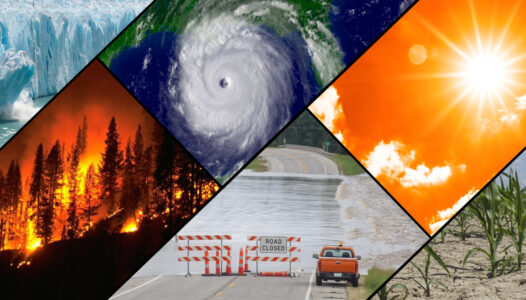The European Central Bank (ECB) and the European Insurance and Occupational Pensions Authority (EIOPA) have on 18 December released a joint paper with a proposal designed to reduce the economic impact of natural catastrophes in the EU. The paper builds on the policy options presented in a 2023 joint ECB-EIOPA discussion paper which advocated a ladder approach to natural catastrophe insurance involving both the private and public sectors.
This proposal is a response to the growing frequency and severity of natural catastrophes linked to climate change and the rising economic losses they entail. The proposal seeks to protect people, businesses and governments from these losses, thereby also mitigating the associated macroeconomic and financial stability risks in the EU. It does so by incentivising risk mitigation and adaptation and clarifying the division of responsibilities between the private and public sectors.
Building on existing national and EU structures, the ECB and EIOPA propose a possible EU-level solution composed of two complementary pillars:
- An EU public-private reinsurance scheme to increase the insurance coverage for natural catastrophe risk. By pooling private risks and perils across the EU, this scheme would exploit economies of scale and diversify the coverage of high risks at the European level. It would be funded by risk-based premiums from (re)insurers or national insurance schemes.
- An EU fund for public disaster financing to reinforce public disaster risk management in Member States. Financed by contributions from Member States, this fund would help rebuild public infrastructure following natural disasters, subject to Member States having implemented agreed risk mitigation measures prior to the event to minimise moral hazard.
As natural catastrophes become more frequent and more severe, insurance is expected to become less affordable and the already sizeable insurance protection gap is likely to widen further. At the same time, the paper shows that national public-private insurance schemes are helping to reduce the insurance protection gap in several countries. It examines how these schemes make use of private and public funds to do so.
“Recent events in Europe have shown the challenges the EU and its Member States are facing in dealing with natural catastrophes,” said EIOPA Chairperson Petra Hielkema. “This calls for coordinated action. The proposals presented are meant to spark a discussion on possible ways to reduce the insurance protection gap through an EU-level solution, while preserving the integrity of national insurance schemes,” she added.
ECB Vice-President Luis de Guindos said: “We need to get prepared for the rising climate risks. The proposed solution is one possible way to mitigate the macroeconomic and financial stability risks from natural catastrophes, while also reducing moral hazard.”






